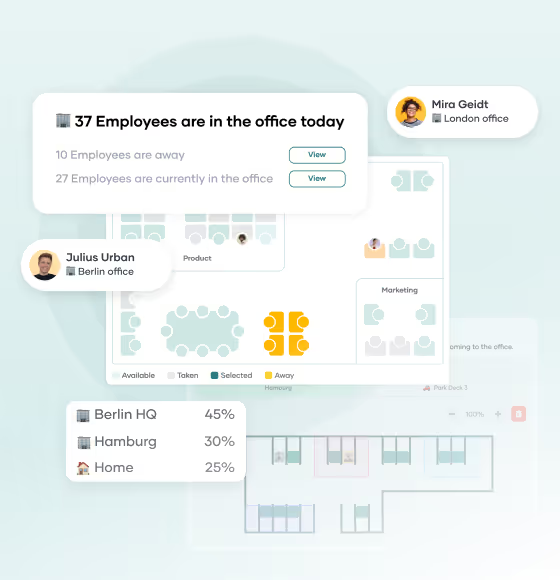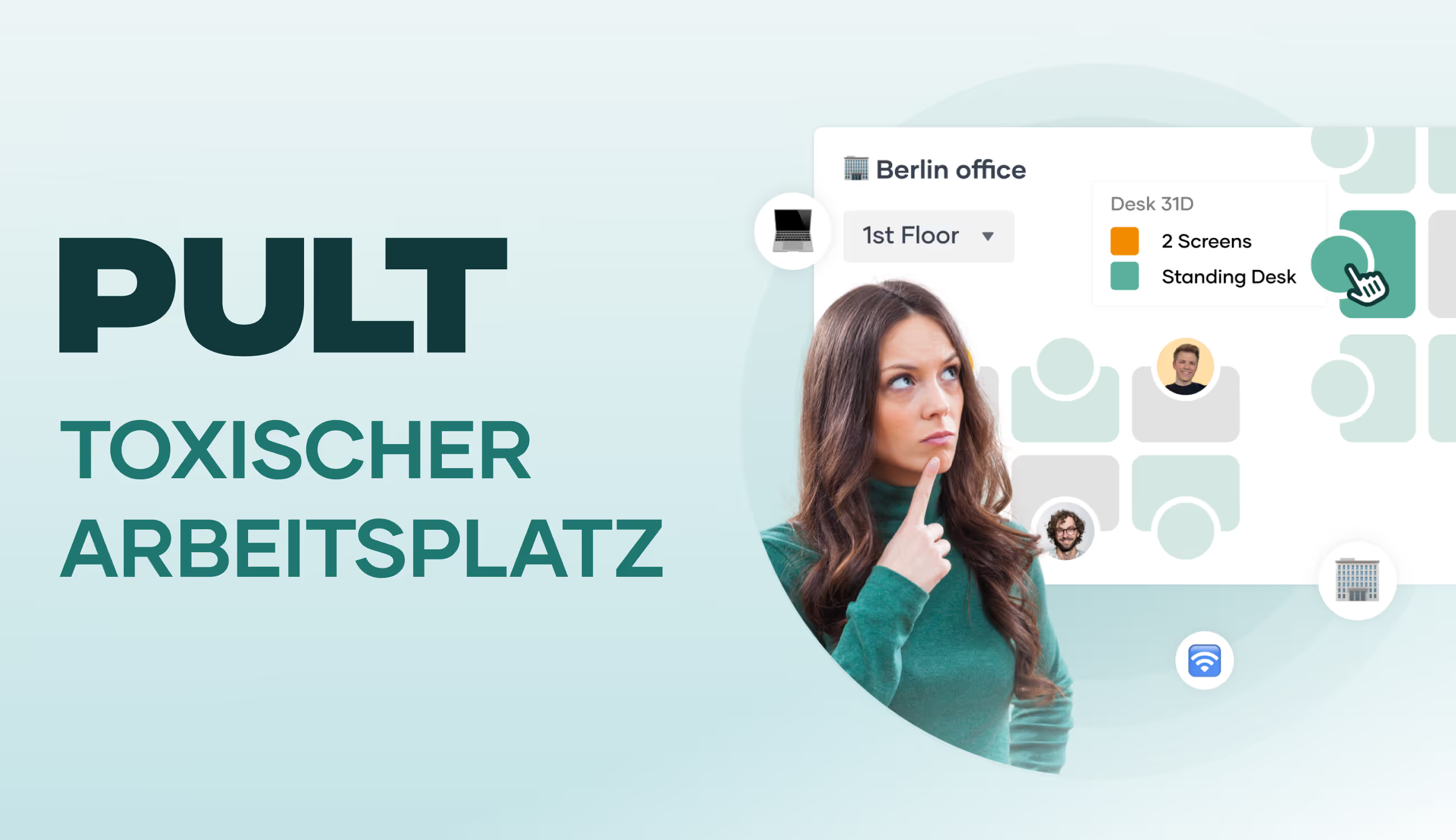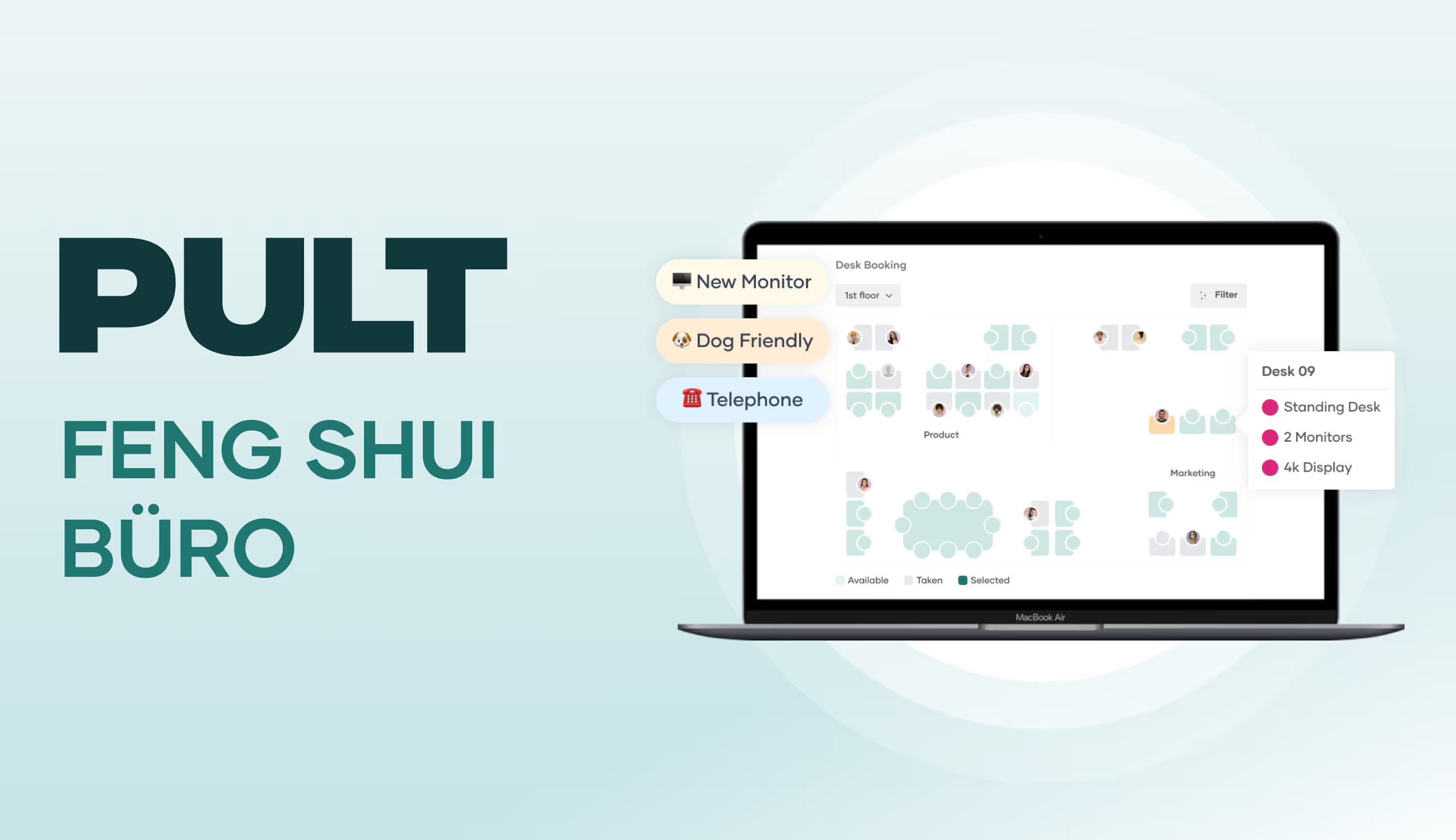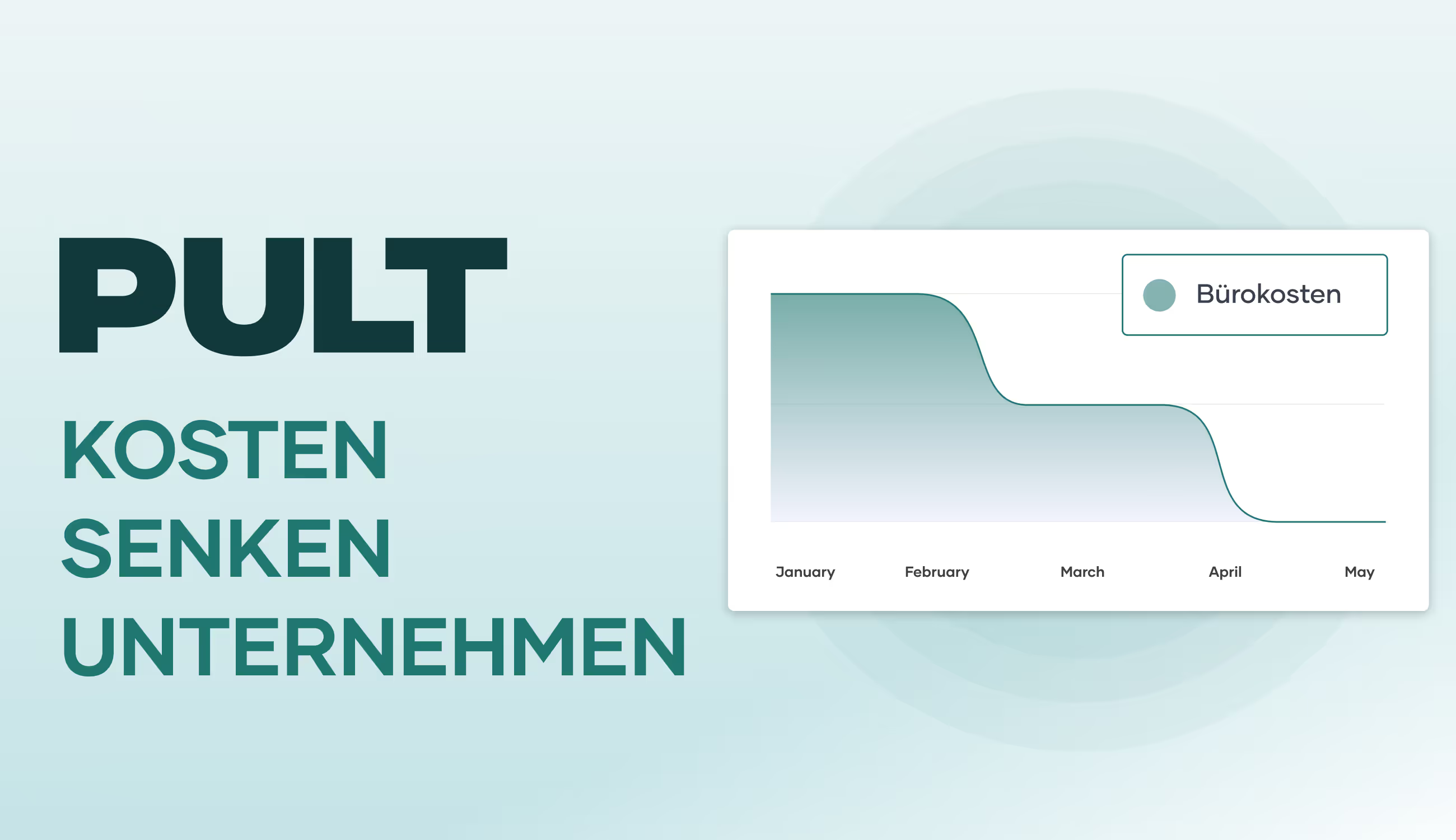Guide: How Desk Sharing Works in Public Administration
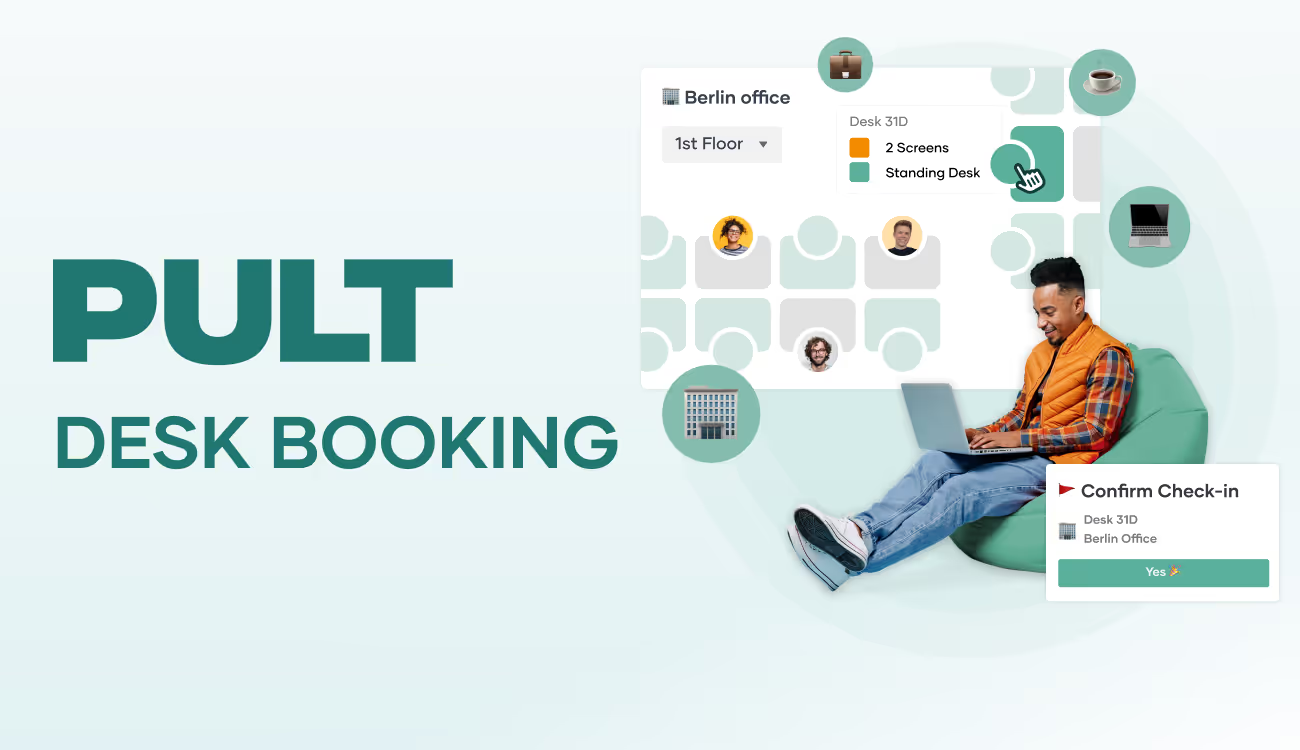
A recent IAG study with almost 2,000 participants shows that 60% of employees are satisfied with desk sharing. Almost half of those surveyed came from the public sector.
But desk sharing in public administration has its own rules. Data protection, co-determination, accessibility: the legal hurdles are higher than in the private sector.
In this article, you will learn what legal considerations need to be taken into account, how other authorities have done it and what concrete steps lead to success. No theory, just tried-and-tested experience.
{{hint-box}}
What is desk sharing in public administration?
Desk sharing means that several employees share the same workspaces. Instead of everyone having a fixed desk, they book a free space as needed. This is particularly relevant in public administration, as many colleagues now work from home and many workspaces are empty.
Employees use software to book their workspace for the desired day. In the morning, they sit down at their reserved space, work as usual and tidy up in the evening. Nothing is left behind; lockers are typically provided. The space is available to others the next day.
Particularly interesting for public authorities: Due to home office regulations and flexible working hours, many administrations have an office utilisation rate of only 60 to 70%. Desk sharing makes optimal use of this free capacity and saves rental costs. At the same time, new opportunities for interaction arise between departments that otherwise have little contact.
The difference to fixed workspaces: Instead of 100 employees with 100 workspaces, you work with 70 to 85 workspaces. The space saved can be used for other purposes, such as attractive break areas or collaboration zones, which increases the overall appeal of the workplace. Another option is to reduce the amount of space rented and thus save costs.
The legal basis for desk sharing in public administration
Desk sharing in public administration is generally permitted. This has also been confirmed by the latest ruling of the Baden-Württemberg Regional Labour Court. However, you must observe staff council representation rights, data protection and GDPR, accessibility and occupational health and safety regulations.
Staff representation rights: According to Section 80 (1) No. 4 BPersVG, the staff council has a say in workplace design. This means that you need to involve them from the outset. No. 21 of the same section also covers technical equipment such as booking systems.
The practical consequence: involve the staff council in the planning phase. Subsequent co-determination procedures are complicated and time-consuming.
Data protection: The GDPR applies particularly strictly to public authorities. Although Art. 6 (1) (e) GDPR legitimises data processing for public tasks, you must observe the principle of data minimisation in accordance with Art. 5 (1) (c) GDPR. Only record the name/personnel number, booking time and workplace ID. Recording the content of activities or performance evaluations is not permitted.
Accessibility: Section 12a BGG requires you to use WCAG 2.1 AA-compliant booking systems. This means screen reader compatibility, sufficient colour contrast and keyboard operability.
Occupational health and safety: Section 5 of the German Occupational Safety and Health Act (ArbSchG) requires a specific risk assessment for changing workplaces. Mental stress caused by changing workplaces must be explicitly taken into account.
Create a structured service agreement that regulates all aspects, from workplace equipment and the booking procedure to data protection and accessibility.
Examples of desk sharing in public administration
Metzingen municipal administration: 400 employees, three locations, one software. The city in Baden-Württemberg introduced desk sharing in August 2022. IT manager Jörg Stritzelberger reports rapid acceptance after a short familiarisation period. Features that mark the presence of other colleagues on the office plan and filter workstations according to their characteristics are particularly appreciated.
Heidelberg University Hospital: This is an example of how the gradual expansion of desk sharing works in an institution. The hospital started with pilot areas and continuously expanded desk sharing based on the optimised experiences from areas that had already been implemented.
University of Hamburg: A legally binding pilot project with a clear service agreement has been running here since March 2024. The concept integrates mobile working with standardised workplace equipment and clear rules for personal belongings.
The documented added value: better employee exchange, time and resource savings, optimal workplace utilisation. Measurable cost savings through a 20 to 40% reduction in space, with typical rents of £50 to £150 per m²/month, means significant budget relief.
Sharing rates range from 0.67 to 0.83 workstations per employee, with safety buffers planned for peak times.
{{cta}}
Preparing public administration employees for desk sharing
Younger colleagues (Generation Z, Millennials) generally show a high level of acceptance for flexible working models. You will encounter more resistance from older colleagues (Baby Boomers, Generation X), not out of stubbornness, but because of legitimate security needs and a preference for tried-and-tested structures.
Main resistance factors: Data protection concerns (21% according to a Bitkom/DStGB study), traditional administrative culture with hierarchical decision-making processes, practical concerns such as the time required to find a workplace and legal uncertainties.
Proven strategies: Hold informative workshops to raise awareness. Communicate concrete improvements in work-life balance, rather than abstract efficiency gains. Offer systematic training for all age groups, but with different focuses.
Cultural characteristics of the administration: Hierarchical decision-making processes prolong implementation, but they also offer stability. Legal frameworks create higher compliance requirements, but ensure legal certainty. Greater intrinsic motivation through social benefits and lower staff turnover enable sustainable planning.
Communication: Use multiple channels (intranet, newsletters, personal conversations). Be transparent and openly highlight advantages and disadvantages. Plan interactive elements such as Q&A sessions and feedback loops. You can win over sceptics with concrete benefits and security guarantees. You can get supporters on board by giving them opportunities to shape the process. Don't ignore the ‘silent majority,’ because they often decide whether something succeeds or fails.
Technical implementation of desk sharing in public administration
Desk sharing software is an important part of the technical implementation, along with GDPR compliance, accessibility, and IT security in accordance with BSI standards.
GDPR compliance: German servers, EU data protection compliance, order processing agreements in accordance with Art. 28 GDPR. Make sure providers have ISO 27001 certification.
IT security: Multi-factor authentication, role-based permissions and TLS 1.3 encryption.
Clean desk policy: Workstation reset after each use, secure storage of confidential documents in lockable rolling containers, automatic screen lock when not in use.
Minimum hardware requirements: Standardised docking stations for laptops, dual monitor sets, height-adjustable desks and ergonomic input devices.
Your path to successful desk sharing
The 60% satisfaction rate for implemented solutions demonstrates the potential, while the 47.6% preference for fixed workstations illustrates the change management at the heart of the transformation.
The success factors: early involvement of employee representatives in accordance with Section 66 of the German Federal Personnel Representation Act (BPersVG), GDPR-compliant technology and software with German server locations, generation-specific communication and step-by-step pilot project implementation.
The figures speak for themselves: Cost savings of 20 to 40% in office space justify investments of €180,000 to €250,000 for 100 employees with a payback period of 2-3 years.
Your next steps:
- Conduct a systematic analysis of the current situation with an employee survey
- Involve the staff council from the outset
- Choose GDPR-certified software with German servers
- Develop a multi-stage training concept for all age groups
- Start with a pilot area and evaluate continuously
Desk sharing software for public administration
PULT is booking software for your desk sharing concept. It is browser-based and therefore works on any device, including smartphones, laptops and PCs. The interactive office plan accurately maps your office, shows available workstations and can be filtered by equipment.
Automation with PULT Presence: As soon as employees connect to the office Wi-Fi, they are automatically checked in without having to use an app or make any manual entries. This makes the solution attractive even for sceptical colleagues, as it does not create any extra work for them.
Suitable for public authorities: PULT is GDPR-compliant and meets the strict compliance requirements of public institutions. German servers, ISO27001 certification and role-based access control provide the necessary legal security. The existing Wi-Fi infrastructure can also be retained.
Practical features: Interactive floor plans not only show available spaces, but also where colleagues are sitting. This simplifies collaboration and removes the anonymity from desk sharing. Comprehensive analytics help to optimise office space based on data and document the ROI.
Desk sharing in public administration – Frequently asked questions and answers
Is desk sharing legally permissible in the public sector?
Yes, in principle. However, you must observe the co-determination rights of the staff council and conclude a service agreement. In addition, the usual occupational health and safety regulations apply: every workplace must be ergonomically adjustable and safe.
How much does desk sharing cost the public administration?
The initial investment is usually between £500 and £1,500 per workstation for technology and conversion. However, you will save significantly on rent and office space in the long term. Many authorities expect a return on investment after two to three years.
How do I organise my personal belongings when sharing a desk?
Every employee is provided with a lockable locker or a mobile box for their belongings. Personal items must not be left at your workplace permanently. At the end of the day, you must clear your desk completely; this is known as the ‘clean desk policy’.
How many workstations do I need for desk sharing?
The rule of thumb is around 0.7 to 0.8 workstations per employee. This means that for ten people, you need seven to eight workstations. The exact number depends on how often your colleagues are actually in the office.
How can I successfully introduce desk sharing?
Start with a pilot group and get the staff council on board early on. Clear rules, good technical equipment and honest communication about the advantages and disadvantages are important. Don't force anyone to participate; voluntary participation works better in the pilot phase.
What problems arise with desk sharing?
Some employees feel homeless without a fixed place. Spontaneous conversations are more difficult when colleagues are hard to find. Technology can also be annoying when the booking system isn't working or the screen height has to be constantly adjusted.
Does desk sharing work in every department?
No, it doesn't make sense everywhere. Employees with special equipment or files that need to be readily available often require fixed workspaces. Teams that work together a lot also sometimes benefit more from fixed workspace neighbourhoods.
A new hybrid workplace experience is coming. Start Now. 🎉
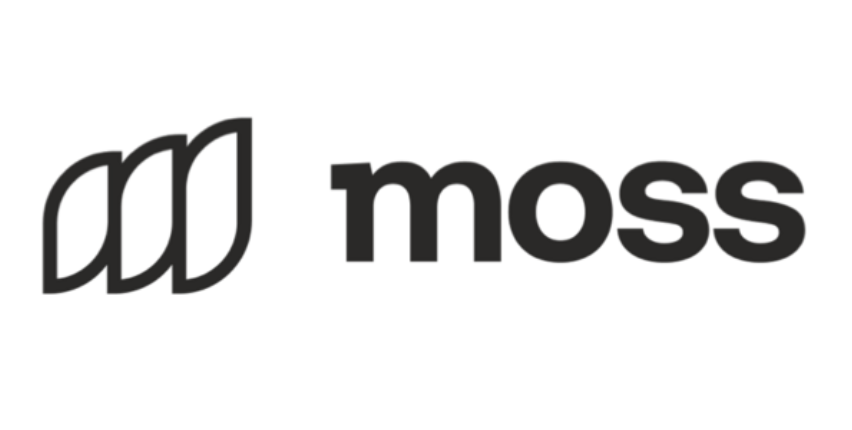




















.avif)


